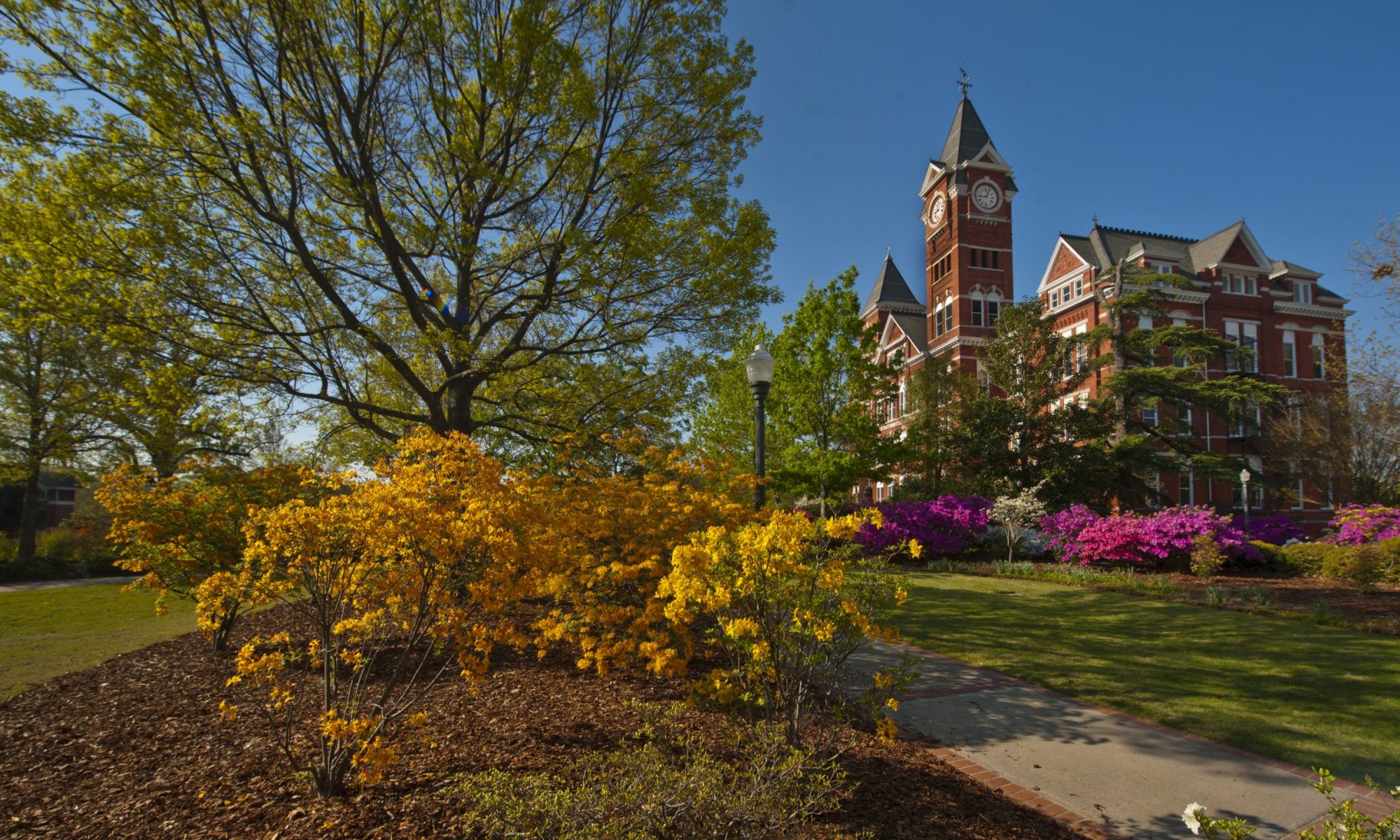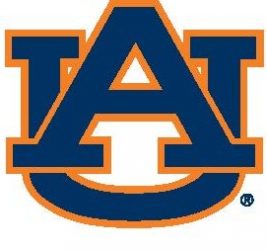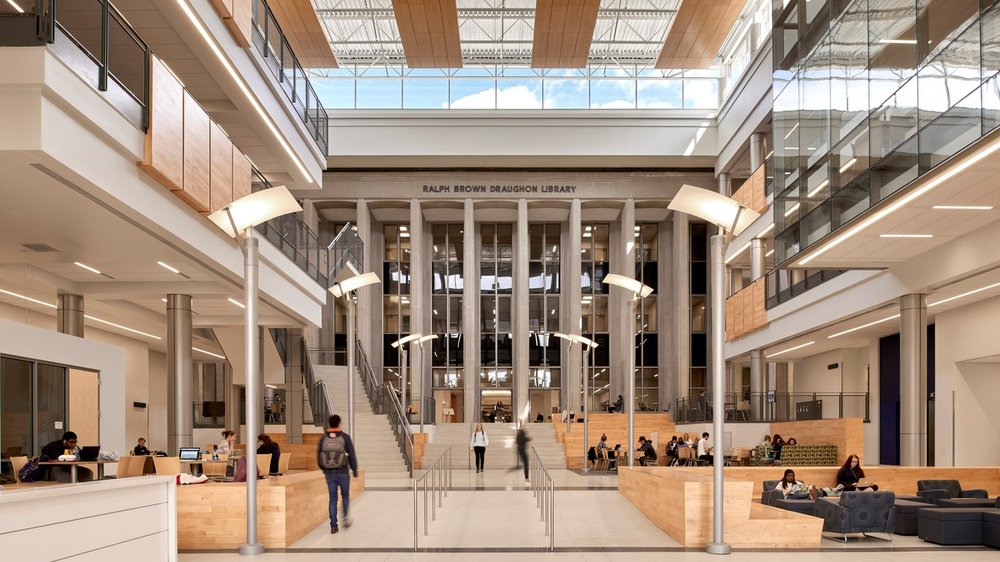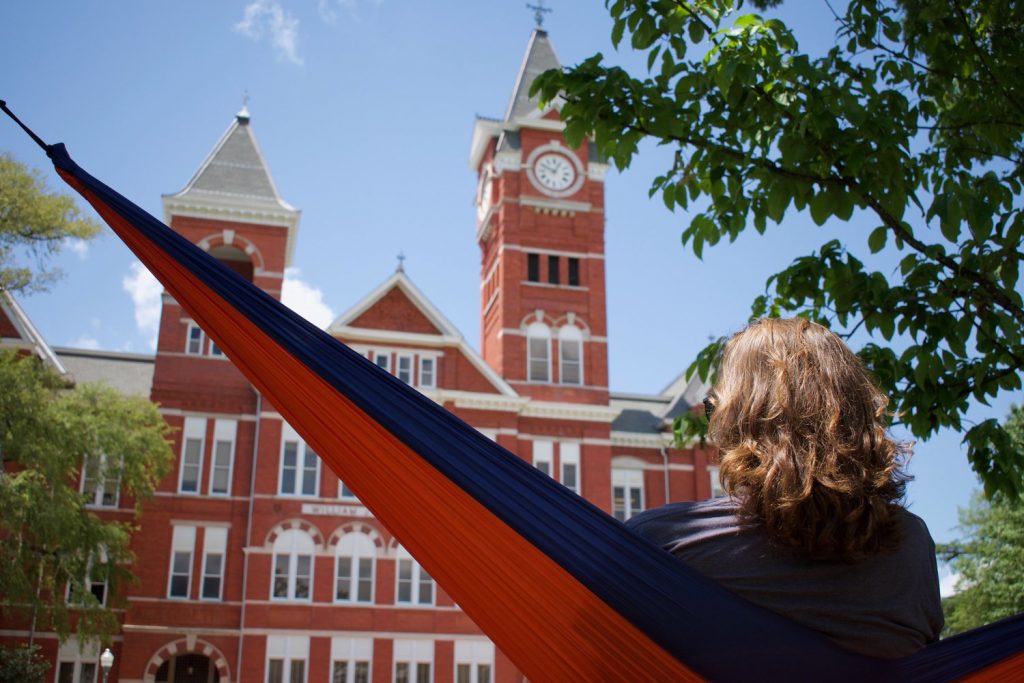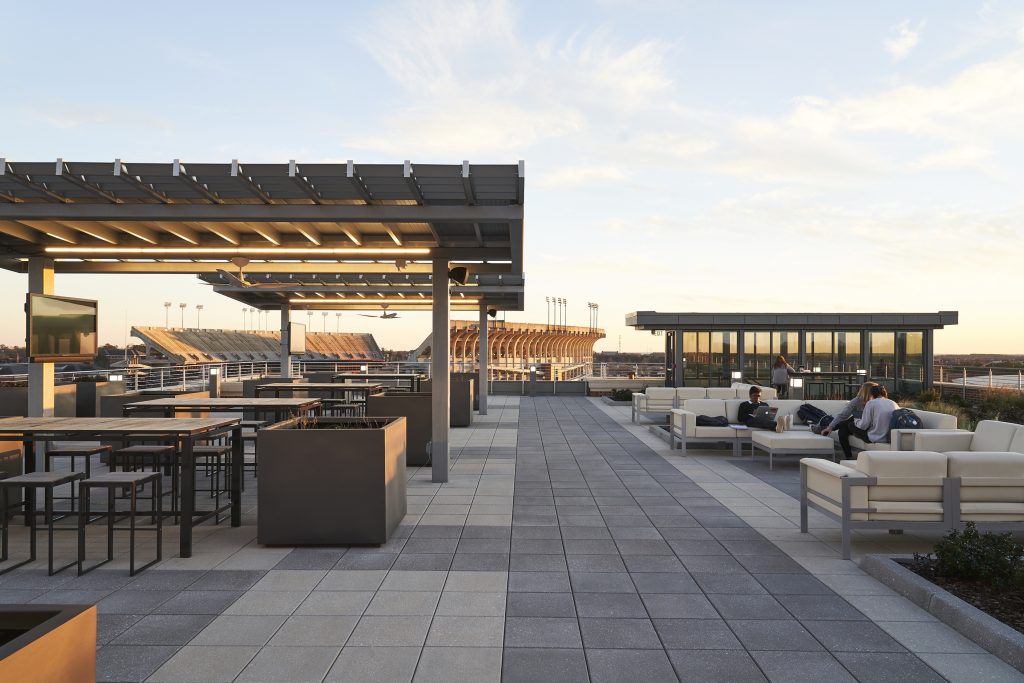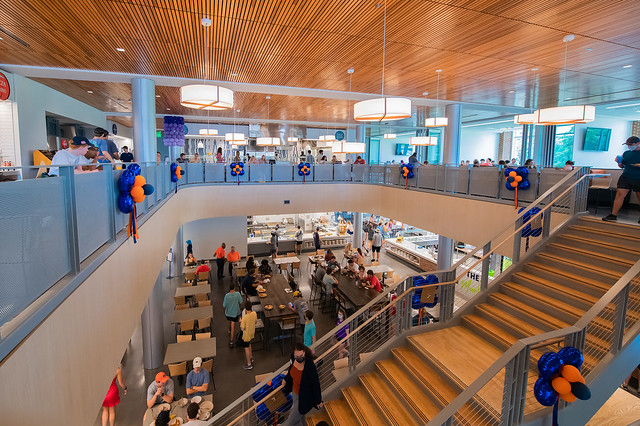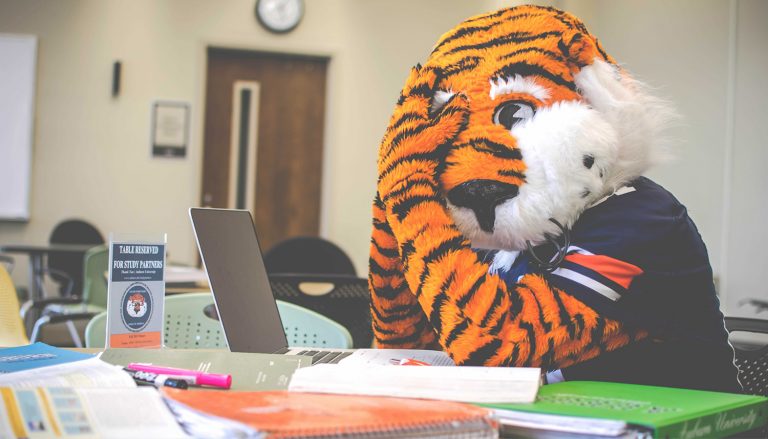Nursing is a calling to serve others! As a new cohort of students begins classes this semester, current students are preparing for graduation and beginning the next phase of their careers as registered nurses, doctors of nursing practice, faculty members and nurse scientists.
For Kylie Snyder, a native of Pelham, Ala., Auburn University felt like home the minute she stepped on campus. “Not only do I feel supported by my friends and my school, but even the surrounding community has a genuine love for the students in this town.”

Why Nursing?
Becoming a nurse has been a dream of mine for years, and every opportunity I’ve had that exposed me to this field has further shown me that this is the career to be in. It allows me to cultivate skills such as kindness, communication, and leadership. I’ll always be able to financially support myself with endless opportunities in a high-demand profession.
Since the first day, AUCON has provided me with an even better experience than I ever imagined. Nursing school is a whirlwind, and even as a second semester student, I can tell it’s going by fast. Although the days are often long and filled with hard work, I love every single minute of it.
Class size:
My cohort is about 82 people, and it’s a great size! The lecture halls in the school are equipped with microphones for the professors, and I’ve always been able to clearly see and hear them. We usually have about 4-5 students per instructor for technical and hands-on skills, giving us an opportunity to ask questions and to practice our skills in a safe and enriching environment.
Favorite Part of Nursing?
My clinical experiences! Connecting what I’ve learned in class and in lab to a real patient has been immensely rewarding, and I love that what I’ve learned in school has allowed me to directly make a difference in my patients’ lives!
Campus Activities:
As secretary and incoming vice president of the Pediatric and NICU Club, as well as a member of Student Nurses Association, I have had the opportunity to make a tangible impact on the surrounding community, and I cannot think of anything more rewarding than that. Being a part of these clubs has helped me develop leadership skills, gain a community of fellow students with common interests and has allowed me an outlet to be creative in the work I do.
Future Plans:
While I’m trying to keep an open mind to all the possibilities, there is just something about working with a pediatric population that gives me “heart sparkles!” I love being around kids, their families, and creating relationships I can cultivate with this specialty. I hope to be a travel nurse for a few years after graduation and then would like to get another degree either as a nurse practitioner or a nurse anesthetist. Whatever I do, I know that Auburn will have prepared me and helped shape me into the best nurse possible.
Axel Moreno, from Phenix City, Ala., remembers telling his parents, teachers and friends about where he wanted to go to college even as a little kid — Auburn University! “It is a renowned institution and is committed to helping students succeed. Becoming an Auburn student is one of the best decisions I have made.”
Why Nursing?
I chose nursing because it is a career that is centered around helping, serving, and caring for others. It is not simply a job but a calling for those who want to shine a light of hope on patients who are going through challenging times. My passion to serve others sparked a desire in me to pursue nursing at Auburn University.
Classes in the program:
The classes here are amazing and instructors make learning captivating and interesting. I have learned many nursing skills and have grown so much as a person and student. Like all nursing students, I have faced challenges and struggles throughout my time in nursing school, but if you are willing to put in the time and effort, you will be successful.
Class sizes vary. There are a little more than 100 students in our lecture classes. However, our faculty make time for each of their students by holding open office hours and answering any questions students have during or after class. In the simulation lab, the class size is close to 20 students and the instructors work closely with us when we practice nursing skills.
Clinical experience is what I have enjoyed most about the program. Our clinicals can range from educating elementary students on the importance of oral hygiene to starting IV lines. Clinicals are designed to give us confidence in our practice. We get incredible hands-on experience and the ability to apply our knowledge and practice nursing skills on patients.
Campus activities:
I serve as the treasurer for the Auburn chapter of American Association for Men in Nursing. This organization focuses on providing a framework for all nurses, students, and other key members to meet, discuss and influence factors that affect men in nursing and men’s health. As an orientation counselor, I help guide students as they begin their first semester in nursing school.
Future Plans:
After passing the NCLEX, I plan to work in an ICU to care for critically ill patients, because caring for these patients with complex conditions is fulfilling to me. After I have gained a few years of nursing experience, I plan to return to school to receive a doctoral degree in nursing practice. I hope to become a critical care nurse practitioner and continue my practice in the ICU.

Kaitlyn Gallaspy, a Madison, Ala. native, fell in love with Auburn University when she spent much of her growing years watching Auburn football games with family. When it came time to apply to college, she sought a university that would challenge her academically yet would still feel like home.
“Auburn University has an incredible community of the most encouraging and loving people that I have ever met. As a concurrent degree student pursuing bachelor’s degrees in both Spanish and Nursing, Auburn University could not have been more ideal!”
Inspiration:
My grandmother was my biggest inspiration to pursue a nursing career. She is the embodiment of an inclusive nurse, consistently going above and beyond to care for all people, not just her patients. Healthcare settings can be incredibly intimidating for anyone, and it is important to acknowledge how societal prejudices can impact patients negatively. I recognize my privileges, and I want to be a nurse to actively combat against these injustices to help all patients feel comfortable, cared for, and heard during a vulnerable time. Learning Spanish during my time as a student has allowed me to communicate with so many more patients in the clinical setting.
AUCON experience:
My experience at the Auburn University College of Nursing has been a dream come true. Starting nursing school can be intimidating, but the faculty makes an incredible effort to make all students feel welcome and support them during their time in college.
The class size of each cohort allows for so many special friendships. It is large enough that you can be with new people in each clinical group, but small enough that the cohort feels like a family. The AUCON community is my favorite thing about the program. Nursing school is an exciting time, but it is no secret that it is very challenging as well. Having a support system is critical because you can build relationships with people who understand exactly what you are going through.
Campus Activities:
I am involved in many organizations such as the Social Media Chair of AUCON Student Wellness Committee, PR/Communications of Auburn Student Nursing Christian Fellowship, Member of Pediatric and NICU Club, Member of Student Nurses’ Association, Member of Initiative for Representation in Nursing, Counselor of Summer Transition into Excellence Program, Member of Sigma Theta Tau (International Honor Society of Nursing), and Member of Sigma Delta Pi (National Honor Society of Spanish).
Future Plans:
After I graduate, I plan to move to Birmingham and work as a Registered Nurse in a critical care setting. I also plan to become a Sexual Assault Nurse Examiner (SANE) as well as a Certified Medical Interpreter in Spanish.

Spencer Gilland from Dothan, Ala., grew up in a house divided between Auburn and Tennessee fans. He was pretty sure that he wanted to go to Knoxville as he had visited the city several times, but his mom convinced him to tour Auburn. “I am so glad she did because the Auburn community and campus were so welcoming and inclusive, truly making it feel like a second home.”
His Inspiration:
I chose nursing because when I was younger, I spent a lot of time with my grandma, who was a nurse. She worked in hospice on the weekends and used to take me with her. I met so many nice people and saw the difference she made in people’s lives, and I wanted to do the same.
AUCON experience:
Nursing school has completely changed my life in so many ways. It is by far the most challenging but rewarding experience of my life. I have made lifelong friends and had amazing clinical experiences. I have also met staff that has your back and wants you to succeed. Each semester in the program I have grown not only in my knowledge but also as a person.
Our class size is perfect! It is large enough to not feel like you are in a bubble but small enough to get to know a lot of people closely. I have definitely enjoyed the opportunity to meet amazing people including instructors, peers, employees and patients.
Campus Activities:
I am currently the president of the Auburn Chapter of the American Association of Men in Nursing (AAMN) as well as a member of the Student Nursing Association (SNA). I also competed with my team and won the Dean’s Fitness Challenge last semester.
Future Plans:
I am interested in either working with the pediatric or psychiatric populations.

Kennedy Mason, from Dallas, Texas, is the first person in her family to attend Auburn.
“As a junior in high school, I came to Auburn with my mom for a college tour and absolutely fell in love with the city’s charm! I felt a sense of belonging and knew this was the place for me. I was also lucky enough to convince a few close hometown friends to tag along to attend college with me all the way in Alabama!”
Why nursing?
I am fascinated by science and human anatomy. I have always been interested in working in the medical field, and throughout high school I debated over whether I wanted to attend medical school, PA school or nursing school. A combination of shadowing experiences, volunteering at hospitals, and a nurse who greatly impacted me and my family (after the loss of a loved one) influenced my choice to become a nurse. I strongly value the community and “human touch” aspect of nursing, establishing rapport with patients, and having the opportunity to impact patients beyond just treating their medical diagnosis.
AUCON experience:
The past two years have been full of incredible amounts of personal growth, exciting opportunities, and challenges as well. I am so thankful for all the knowledge I have gained as well as challenges I have faced in nursing school because I have learned so much about myself in the process and feel confident going into the work world as a new nurse.
What have you enjoyed most about the program?
My cohort is around 85 people, the perfect size! Small enough to where we are all familiar with one another but still big enough to have the opportunity to branch out and make new friends.
I have loved the community, family feeling AUCON provides. Whether it’s spending 12-hour clinical days together, late night studying, or even hosting your clinical group at your family’s home for out-of-town clinical, the feeling of comradery is indisputable. I have formed relationships with classmates and instructors (I may never have met outside of AUCON) which I believe is truly unique and special.
Campus Activities:
I’m a member of SNA (student nurses association), Pediatric and NICU Club and IRN (Initiative for Representation in Nursing). As Vice President of Outreach for IRN, I reach out to organizations in the Auburn/Opelika area to coordinate events such as community health fairs. As a student employee on the Diversity Education and Engagement team in Auburn’s Office of Inclusion and Diversity, I work on a team (of students and staff) to develop and lead diversity training sessions and luncheons for student organizations.
Future Plans:
I graduate from Auburn in May 2023, and I hope to find a nursing position at a children’s hospital in either the ICU, ER or hematology/oncology.
